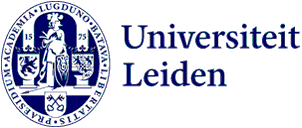
Should you leave academia to handle democracy?
The relationship between academia and democracy is a complicated one. Should policy makers listen to scientists or to citizens? That is the dilemma Valérie Pattyn and Johan Christensen will discuss with a panel of experts during the academic conference EuroScience Open Forum (ESOF).
‘The relationship between academia and democracy is a complicated one because, from a democratic values perspective, you should be listening to the citizens,’ says Johan Christensen. ‘On the other hand, you also want to make sure that you’re implementing and executing high quality policies. For that, you need experts from the academic field. Because not everybody is an expert, the knowledge is distributed unevenly.’
Valérie Pattyn and Christensen work as assistant professors at the Institute for Public Administration and, as researchers, occupy themselves with the role of experts and expertise in public decision-making. According to them, we are dealing with a structural dilemma that can be explained most efficiently by making use of the most recent example: the pandemic.
Sign up for ESOF
Register nowToo narrow scope to look at a complex problem
Pattyn: ‘What you saw during the pandemic is that on the expert side people were using a too narrow scope to look at a complex problem. For instance, the composition of the Outbreak Management Teams in various countries. Only scientists from the medical field took part in the haphazardly assembled teams. During the course of the pandemic the problem was addressed from all sides and the teams were altered to look at the bigger picture.’ Christensen: ‘The other perspectives were overlooked. Only in a later stage, was there attention for the economic and psychological consequences. Academia is an umbrella term and is obviously made up of so many different dimensions.’
Science discredited
As a result, tension arose between citizens and policy makers. Scientists were consciously discredited and attempts were made to delegitimise scientific proof, regardless of the consequences. The spreading of disinformation, Outbreak Management Team members being threatened, and the protests during the press conferences. Pattyn: ‘You’re asking citizens to have faith in science, but that faith was nowhere to be found. A public tension field was created. The insecurity of citizens about the consequences of the pandemic was used against scientists. A populist trend you see more and more in our society.’
Mix of practitioners and academics
During the panel discussion, academics and practitioners will discuss the role of academia in democracies. Jeroen Kerseboom, as head of the Analysis and Research Department of the Dutch House of Representatives, will approach this from the practitioner’s perspective. He will add a nuance as receiver of knowledge and explain how academic knowledge has to compete with other forms of input in the political debate. Mario Scharfbillig is also participating as a practitioner. He works for JRC, the Joint Research Centre, and the academic service of the European Commission. Dorothe Kienhues from the University of Münster, Germany, will shine her light as a psychologist on the trust citizens place in science. Finally, Cathrine Holst of the University of Oslo, Norway, will address the philosophical aspect.
Christensen: ‘We’re hoping to have a broad scope and a wide-ranging discussion with as central question: How should we organise our political system? How do you provide a balance in the relationship between academics and citizens? So that the decision-making process is both democratic as well as evidence-based?’
Pattyn: ‘We need experts to create policy. But we, as academics, shouldn’t be naïve. You don’t possess all knowledge; you can’t do without the expertise from other disciplines. Which is why we need multidisciplinary collaborations, especially when dealing with complex policy dilemmas.’
The EuroScience Open Forum is the largest multidisciplinary science conference in Europe. The tenth edition will be held in Leiden from 13 to 16 July, in close collaboration with EuroScience in Strasbourg. The session Should Policy-Makers Listen to Scientists? is on Saturday 16 July from 9.45 to 11.00. Students and artists can attend ESOF at a discount: admission is €50.
Text: Margriet van der Zee
Image: ANP
